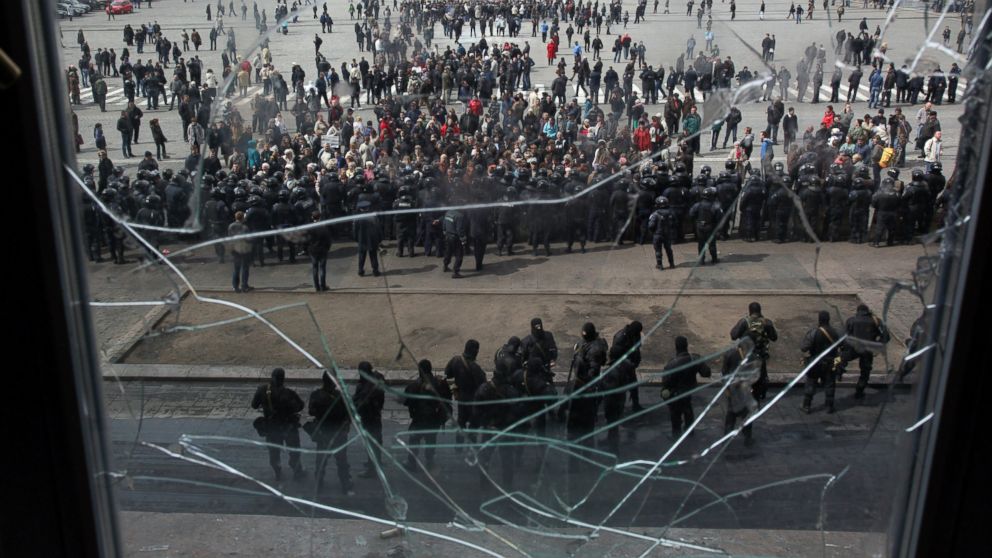US Contractor Greystone Denies Its 'Mercenaries' in Ukraine
Russian Foreign Ministry claims 150 "mercenaries" from U.S. in Ukraine.

April 8, 2014 — -- The Russian government today claimed there are more than 100 American "mercenaries" from a defense contracting company disguised as Ukrainian troops in the embattled former Soviet nation, a claim the American firm and top U.S. officials deny.
The Russian Foreign Ministry made the allegation in a statement today that accused Ukrainian military forces of working with “illegal armed militias” and others, saying the ministry is “especially concerned” about the involvement of 150 American "mercenaries" from the private company Greystone Ltd., a former affiliate of Blackwater.
A woman who answered a call for comment from ABC News today at Greystone denied that the company was involved, saying, “We do not have anyone deployed in Ukraine.” Later, the company told other news outlets they had no comment on the Russian allegations.
White House spokesperson Jay Carney told reporters the claim “seems bogus to us” and Geoffrey Pyatt, U.S. Ambassador to Ukraine, called it “rubbish.”
According to its website, parts of which do not appear to have been updated in years, Greystone began “providing services” in 2004 “as an affiliate of what is now Xe Services.” Xe was the name the controversial defense contractor Blackwater took on before it was sold to private investors, who changed its name yet again to Academi.
READ: Blackwater Founder Unapologetic on Company's Role in Iraq
Greystone was registered in Barbados in 2008 and then in Bermuda in 2010, according to public records.
Greystone founder Christopher Burgess, a former Navy SEAL who trained with Blackwater founder Erik Prince, told Mother Jones in a 2008 email interview that Greystone was formed as Blackwater’s sister company, taking on international contracts where Blackwater would focus on U.S. government contracts. Greystone gets some of its "employees and independent contractors" by recruiting from foreign nations around the world as well, Burgess said then.
“Like Blackwater, Greystone has the tools to provide turn-key security solutions,” Burgess said in 2008. “As an international provider, we try very hard to be sensitive to each unique environment and to create a solution that is appropriate. A critical factor is understanding the desires of foreign customers and working with them, and the tools we have, to create the best solution for them.”
Weeks prior to the Russian Foreign Ministry allegations, videos surfaced online showing heavily armed troops in Ukraine who onlookers accused of being employees of Blackwater and Greystone.
Days after that, Academi posted a statement on its website in response to “irresponsible bloggers and an online reporter” who had “posted rumors that Academi employees (operating under the name Blackwater) are present in Ukraine.”
“They are not, and Academi has no relationship with any entity named Blackwater or with the former owner of Blackwater, Erik Prince,” the March 17 statement said. “Such unfounded statements combined with the lack of factual reporting to support them and the lack of context about the company, are nothing more than sensationalistic efforts to create hysteria and headlines in time of genuine crisis.”